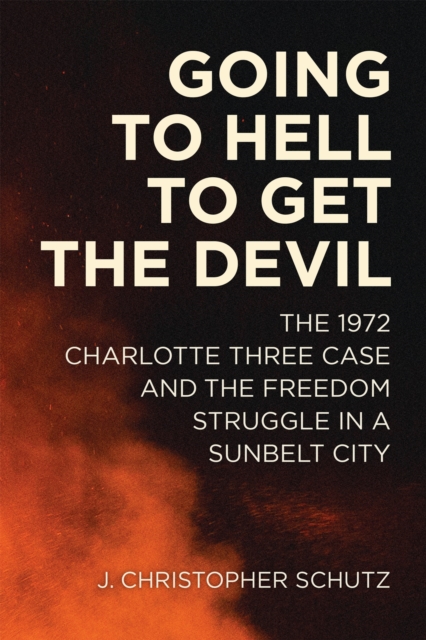
Going to Hell to Get the Devil : The 1972 Charlotte Three Case and the Freedom Struggle in a Sunbelt City PDF
by J. Christopher Schutz
Part of the Making the Modern South series
Description
The 1968 burning of the Lazy B Stables in Charlotte, North Carolina, attracted little notice beyond coverage in local media. By the mid-1970s, however, the fire had become the center of a contentious and dubious arson case against a trio of Black civil rights activists, who became known as the "Charlotte Three." The charges against the men garnered interest from federal law enforcement agents, investigative journalists- including one who later earned a Pulitzer Prize for coverage of the trials-numerous New Left and Black Power activists, and Amnesty International, which declared the defendants "political prisoners." In Going to Hell to Get the Devil, J. Christopher Schutz offers the first comprehensive examination of this controversial case and its outcome.
In the 1960s and 1970s, Charlotte's leaders sought to portray their home as a placid, business-friendly, and racially moderate community. When New Left and Black Power activists threatened that stability, city leaders employed a variety of means to silence them, including the use of law enforcement against African Americans they deemed too zealous. In the Charlotte Three case, prosecutors paid prisoners for testimony against the Black activists on trial, resulting in their convictions with lengthy prison sentences. The unwanted publicity surrounding the case of the Charlotte Three became a critical pivot point in the Queen City's post-World War II trajectory.
Going to Hell to Get the Devil tells more than the story of an arson case; it also tells the story of the South's future, as the fate of the Charlotte Three became emblematic of the decline of the African American freedom struggle and the causes it championed.
Information
-
Download - Immediately Available
- Format:PDF
- Pages:304 pages
- Publisher:LSU Press
- Publication Date:20/03/2024
- Category:
- ISBN:9780807182154
Other Formats
- EPUB from £17.96
Information
-
Download - Immediately Available
- Format:PDF
- Pages:304 pages
- Publisher:LSU Press
- Publication Date:20/03/2024
- Category:
- ISBN:9780807182154










